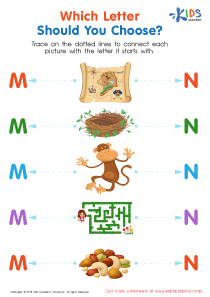Letter recognition Normal Lowercase/Small Letters Worksheets for Ages 4-5
10 filtered results
-
From - To
Discover our engaging “Letter Recognition: Normal Lowercase/Small Letters Worksheets” designed for children aged 4-5. These worksheets provide a fun and interactive way for young learners to identify and recognize lowercase letters. With vibrant illustrations and simple activities, children will develop essential early literacy skills while enhancing their understanding of the alphabet. Each worksheet encourages hands-on learning through tracing, matching, and coloring, making it an ideal resource for both home and classroom settings. Support your child’s educational journey and boost their confidence in reading with these delightful and educational worksheets, perfect for fostering a lifelong love of letters and learning!
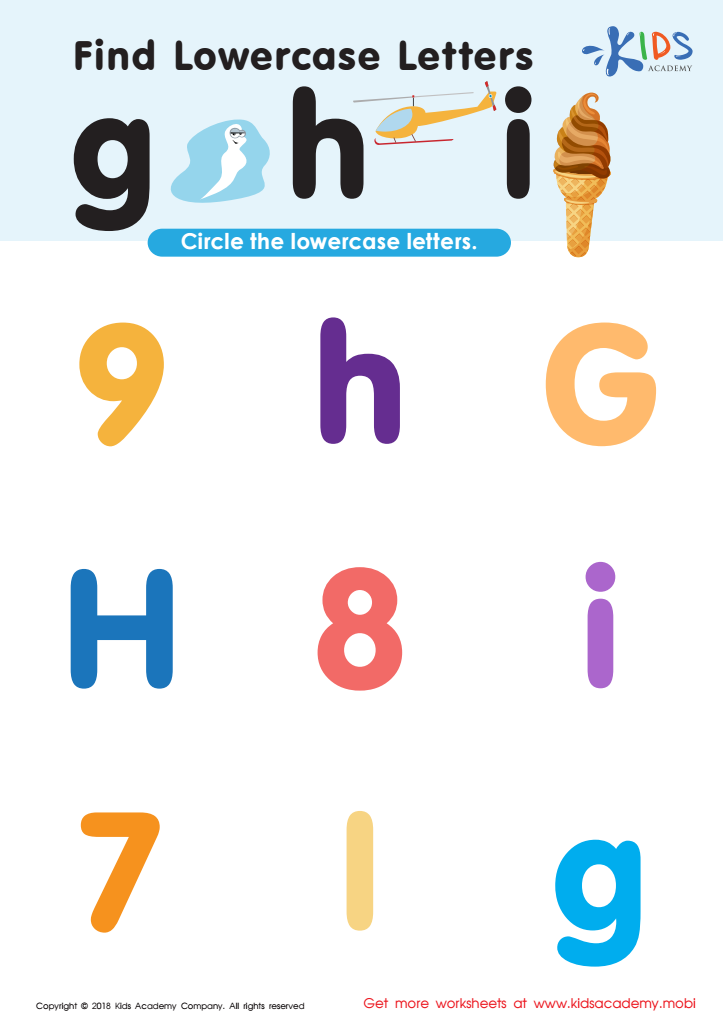

Find Lowercase Letters g h i Worksheet
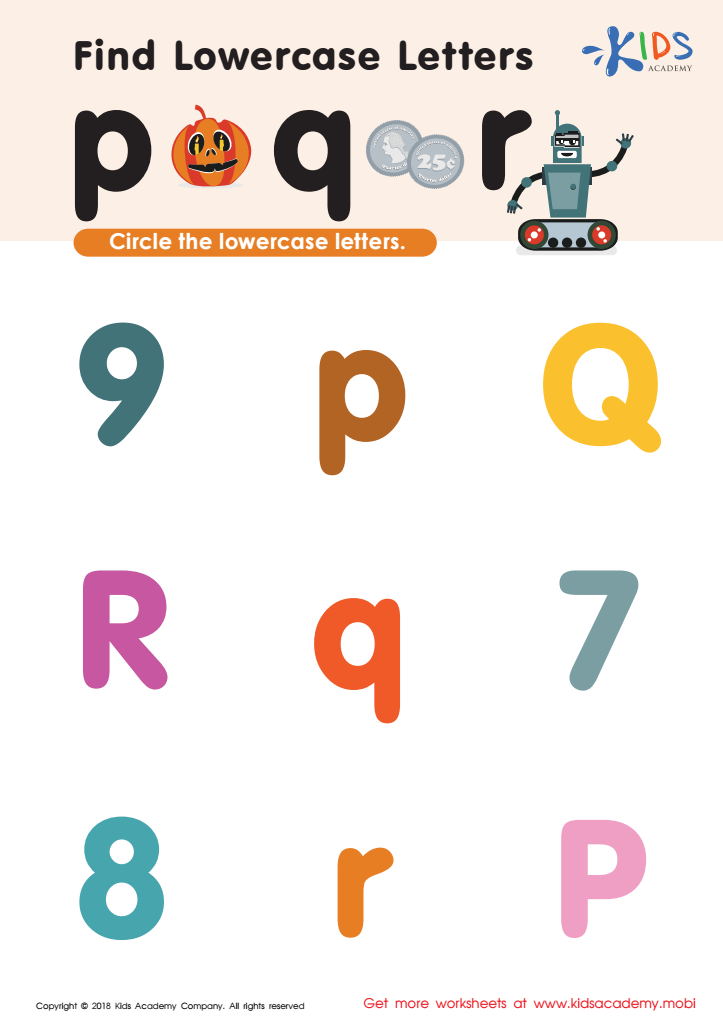

Find lowercase Letters p q r Worksheet
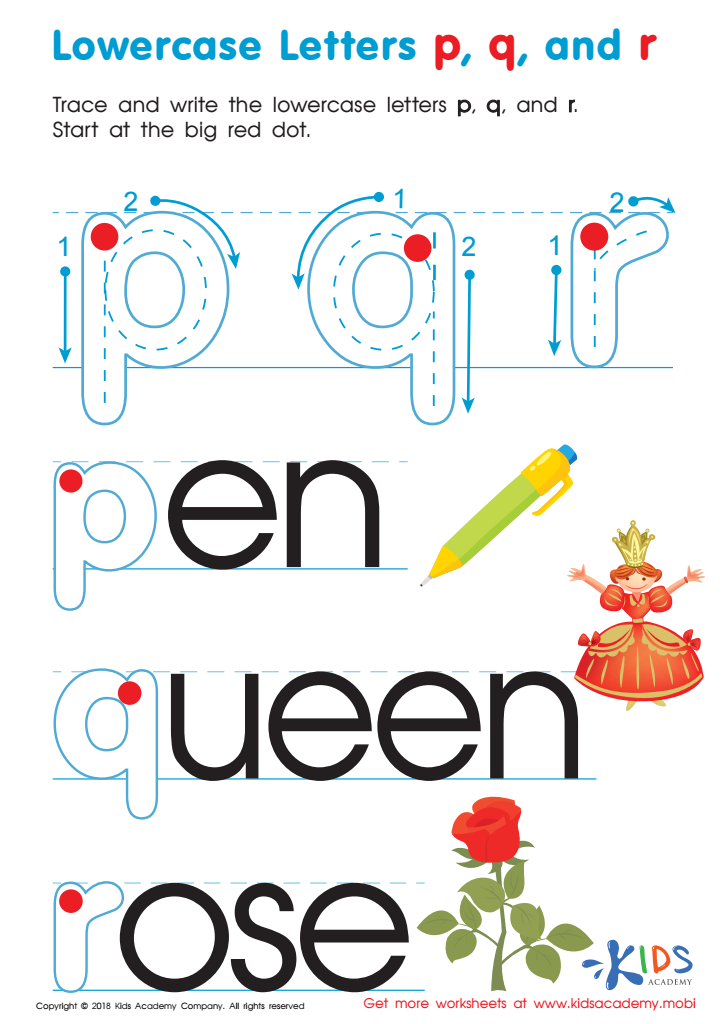

Lowercase Letters p q r Worksheet
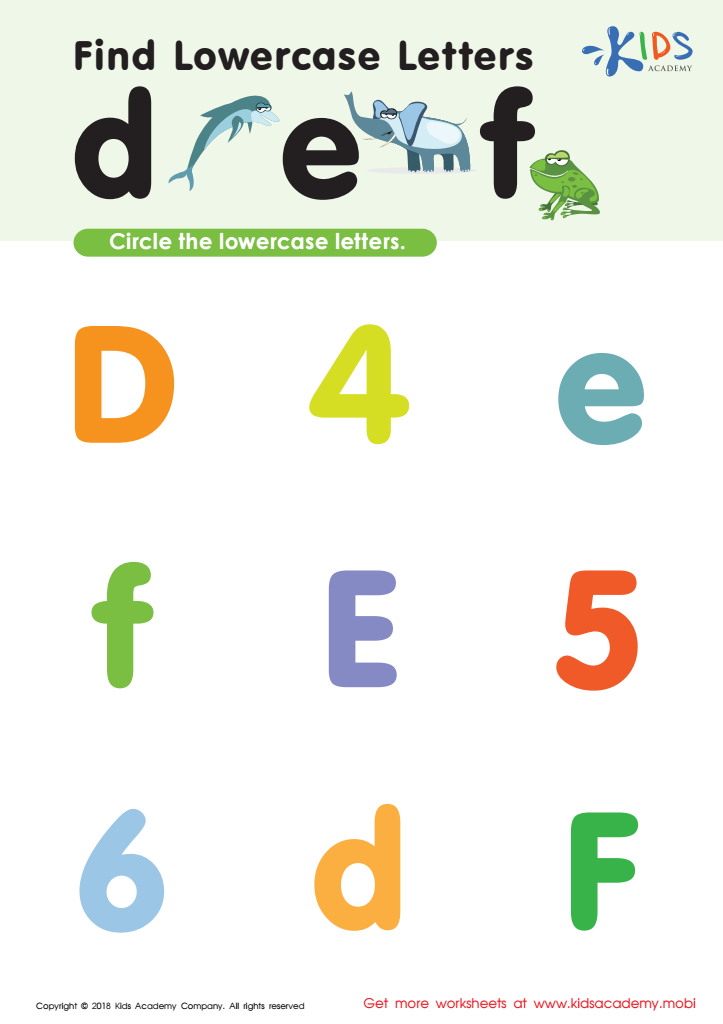

Find Lowercase Letters d e f Worksheet
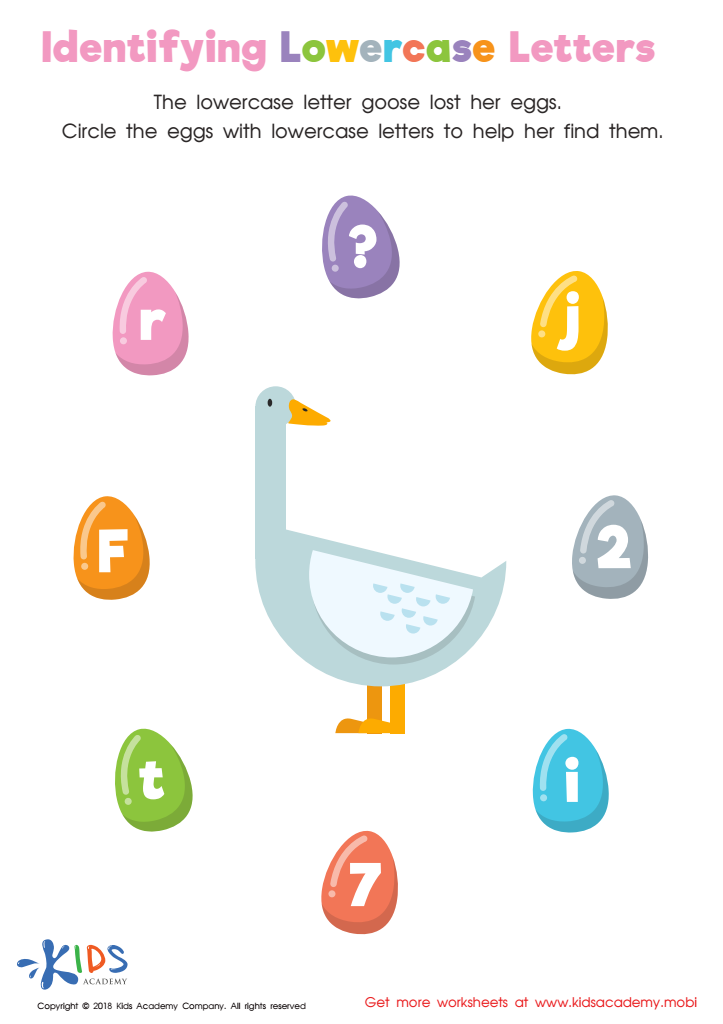

Identifying Lowercase Letters Worksheet
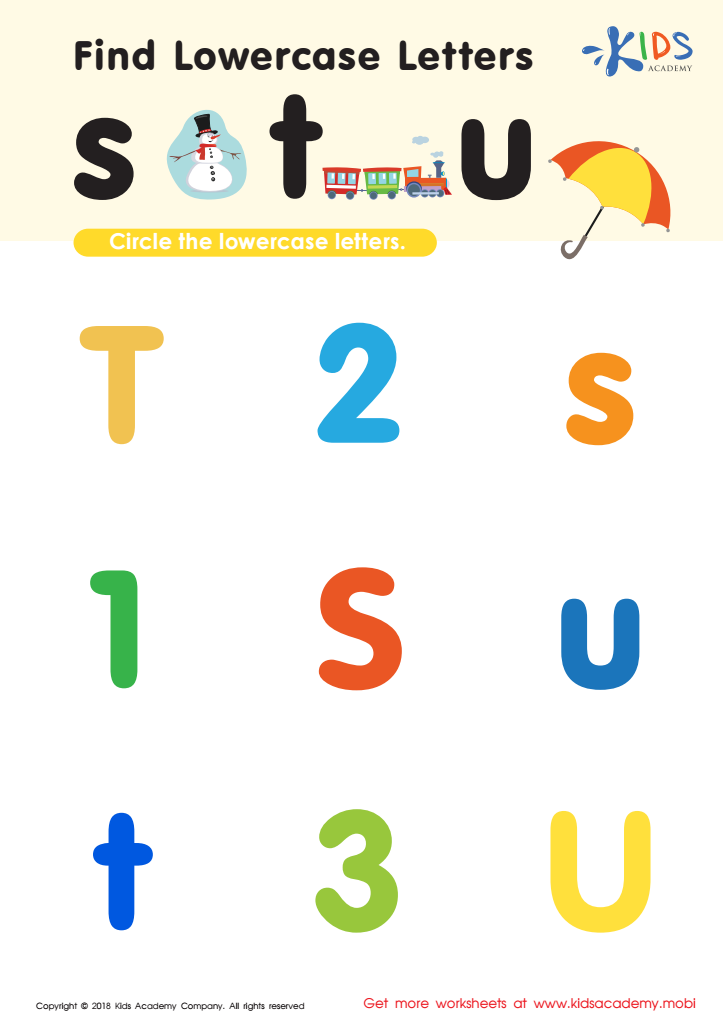

Find lowercase Letters s t u Worksheet
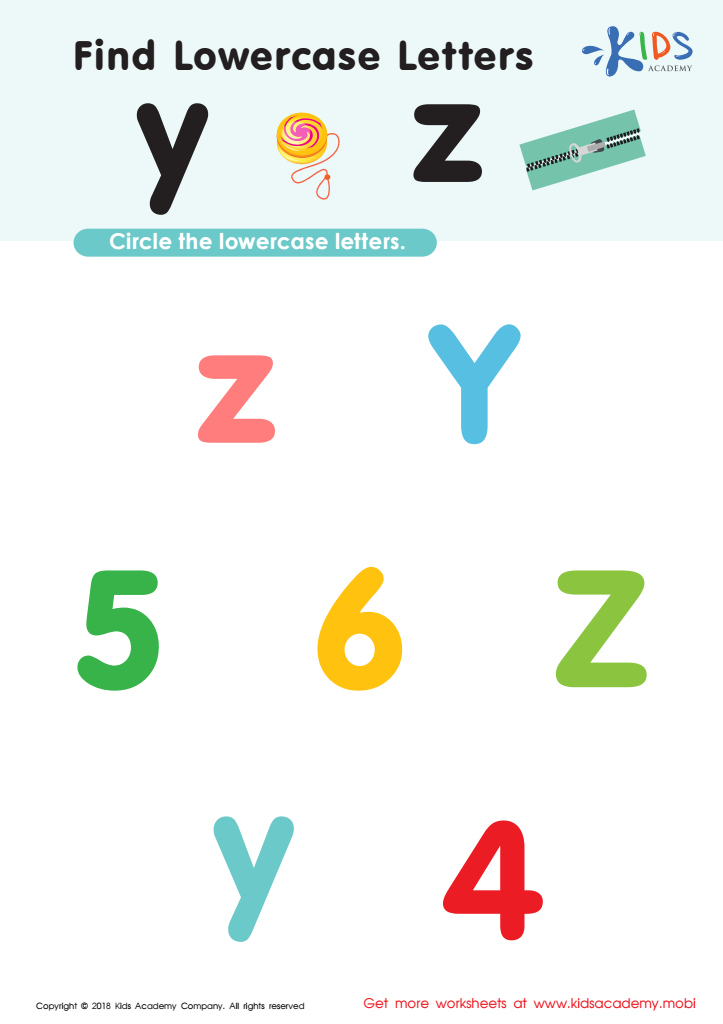

Find Lowercase Letters y z Worksheet
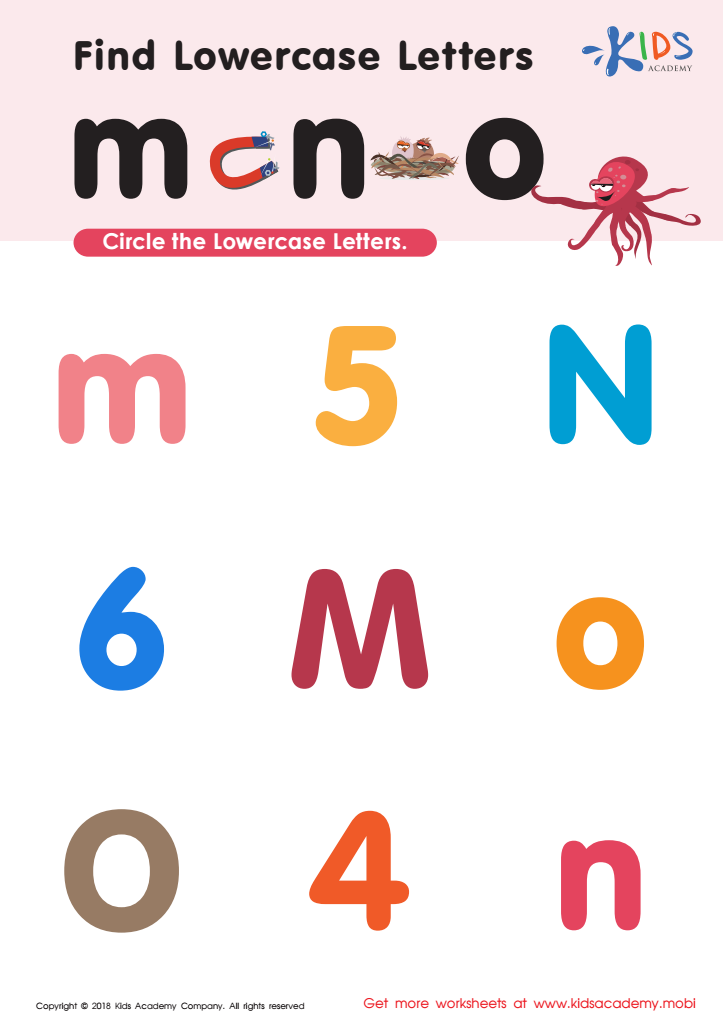

Find Lowercase Letters m n o Worksheet
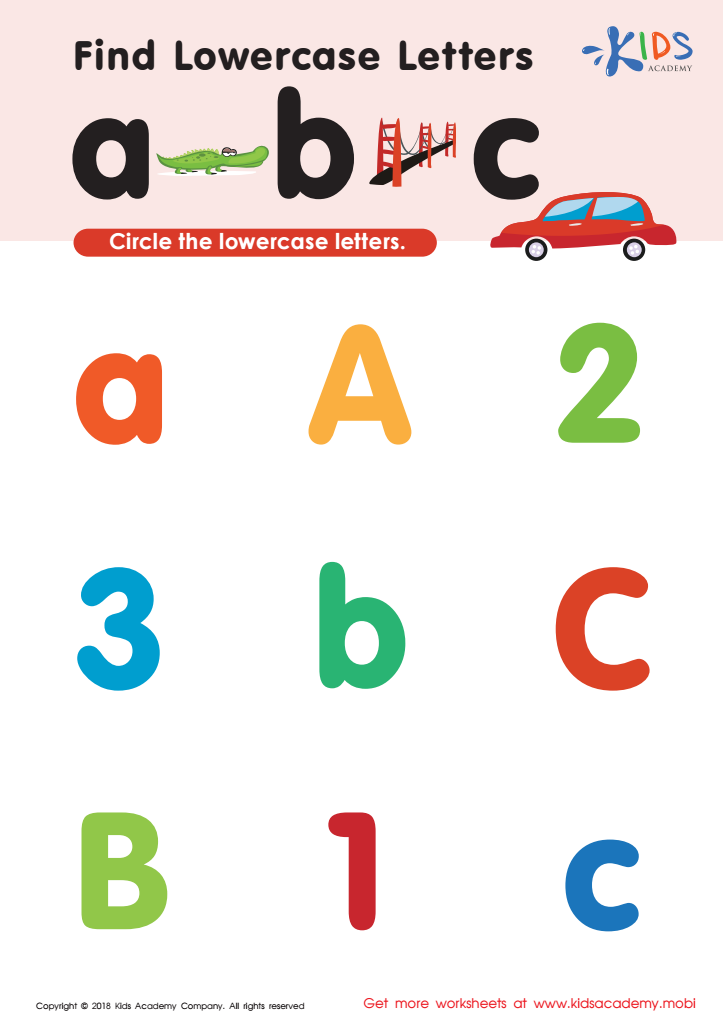

Find lowercase letters a b c Worksheet
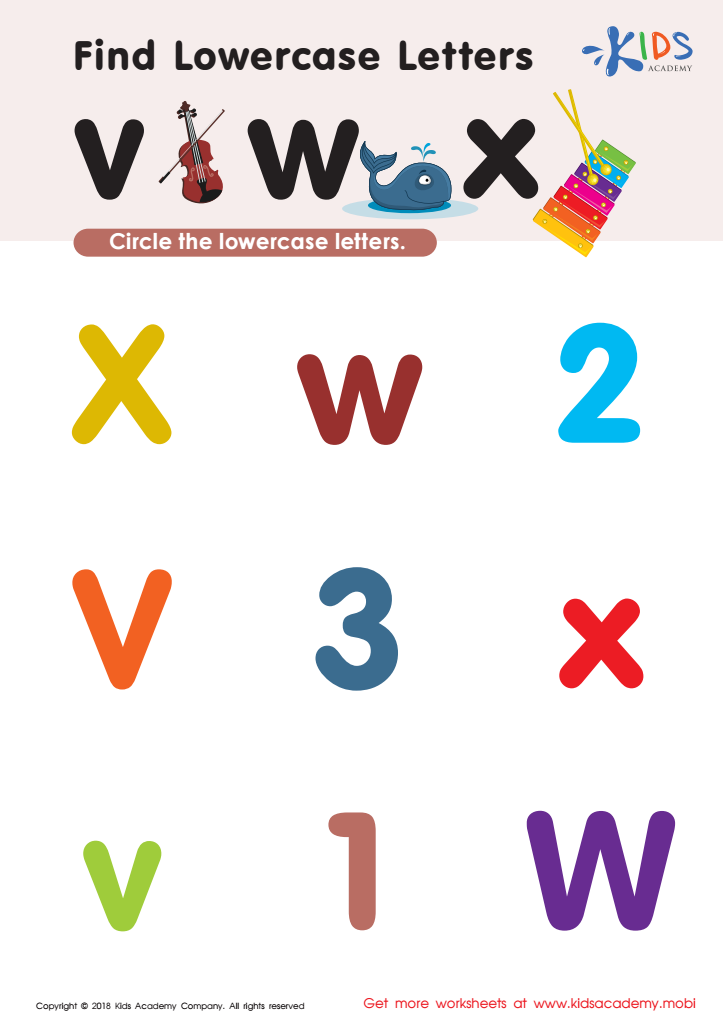

Find Lowercase Letters v w x Worksheet
Letter recognition, particularly pinpointing normal lowercase letters, is crucial for children aged 4-5 as it sets the foundation for their reading and writing skills. At this developmental stage, children begin to explore the world of letters and words. Recognizing lowercase letters is vital because most text they encounter in everyday life, from books to signs, primarily uses these forms.
Proficiency in lowercase letter recognition helps children make connections between letters and their sounds, an essential step towards phonetic awareness. This exercises their cognitive abilities, enhances memory, and builds confidence in communicating. When children understand lowercase letters, they’re better equipped to decode text, which leads to improved literacy skills.
Moreover, when parents and teachers emphasize lowercase letter recognition, they foster a love for reading and writing. Engaging children in playful activities, such as letter games and stories, can boost their enthusiasm and creativity. Early mastery of lowercase letters creates a positive learning atmosphere and encourages children to explore language further, ultimately benefiting their overall academic journey. Thus, investing time in teaching letter recognition empowers children in their future educational experiences and lifelong learning pursuits.
 Assign to My Students
Assign to My Students







